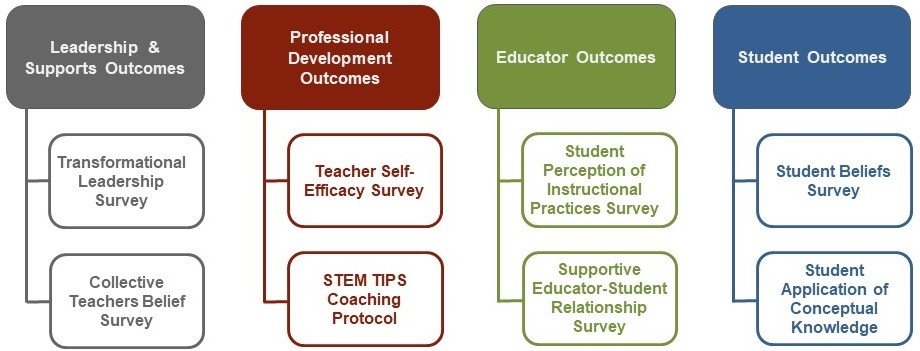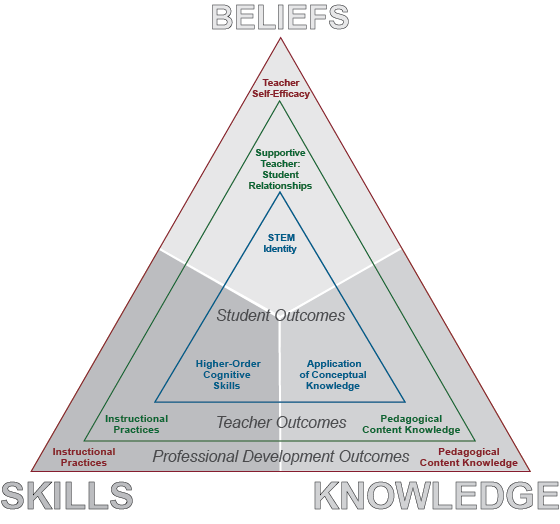Common Measures
The Common Measurements Framework and set of tools support educators and organizations to determine the impact they are having on youth and how they might better support their educators. These resources are used by K-12 schools as well as community organizations. The surveys are designed for youth in grades 3-12. The tools include:
This survey measures students’ deeply held views of themselves and their potential to enjoy and succeed in STEM classes & careers (Academic Identity). It also looks at student’s level of engagement and persistence in challenging STEM learning environments (Motivational Resilience) as well as their belief that they can learn (Growth Mindset).
The Application of Conceptual Knowledge is a framework and rubric that guides educators in developing prompts that help measure students’ conceptual understanding (vs. rote memorization) and they are able to apply their learning to modified or (ideally) new or novel situations. There is a framework & rubric for both Science and Mathematics.
Students share their perceptions of three instructional approaches influential on student achievement in STEM: Student-centered instruction, highly relevant experiences, and frequent use of formative assessments for learning not of learning. There are also statements that measures students’ perception of three NCTM math practices: Constructing viable Arguments, Modeling with Mathematics, and Using Appropriate Tools Strategically.
Educators reflect on their teaching to identify areas for professional growth related to cultural relevance, student engagement, instructional practice and behavior management. The survey is also used to assess the effectiveness of the professional development received.
Educators reflect on their collective capability to positively impact their students’ learning in STEM and it is related to a school’s academic climate, teacher commitment, and how school staff copes with challenges. Two sub-scales are measured: instructional strategies and classroom management/student discipline. Survey is usually administered every few years.
Educators reflect on the support they currently receive in four key areas of leadership: Setting Directions, Helping People, Redesigning the Organization, and Managing the Instructional Program. The survey is usually administered every few years. This is based on the established research of Kenneth Leithwood, et al (2006). PMSP provides the book “Making Schools Smarter: Leading with Evidence” (3rd edition) to schools, which gives schools the right to use the surveys.
Would you like to learn more?
Complete our interest form!


